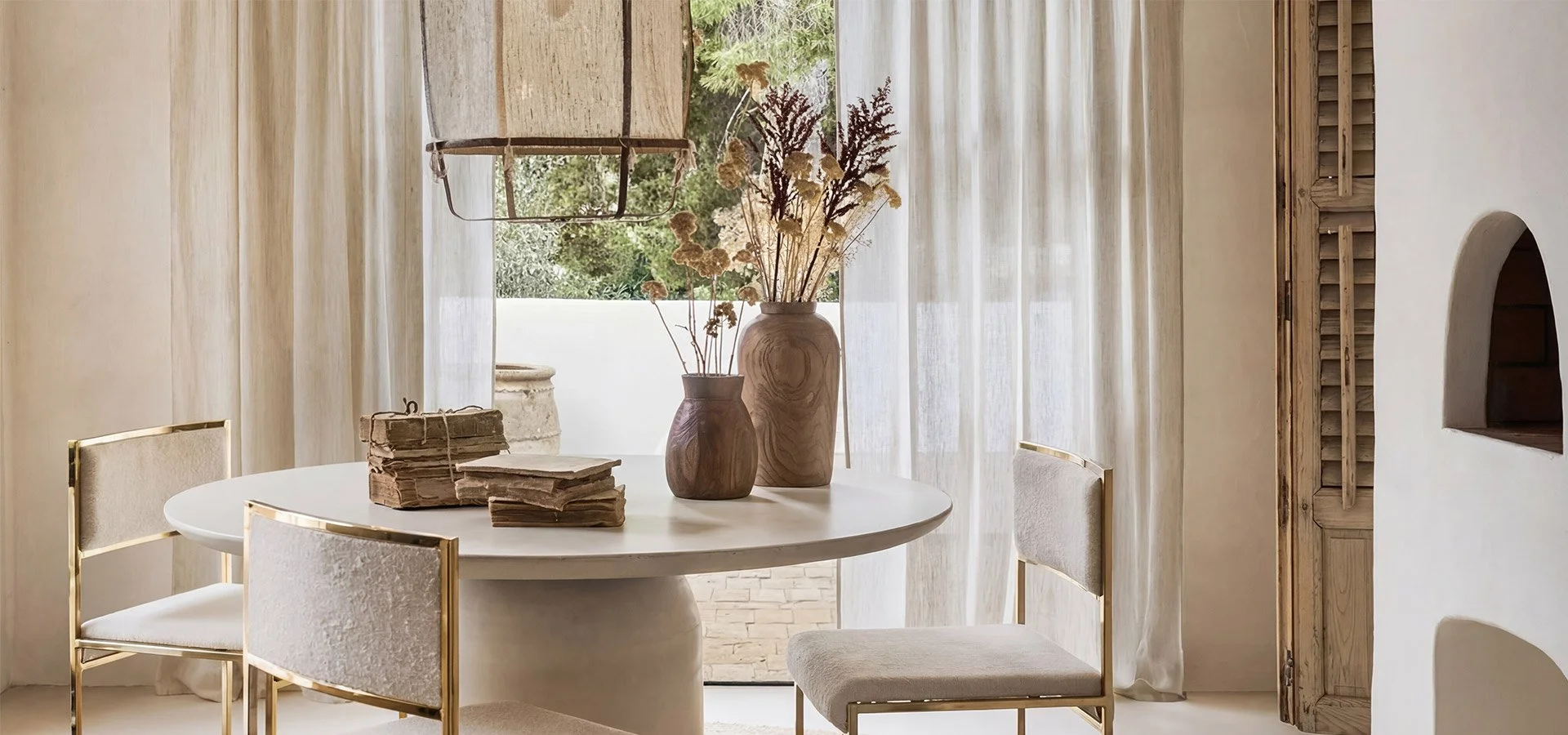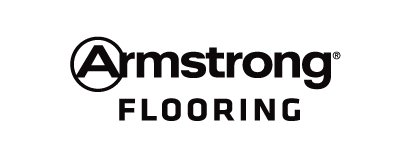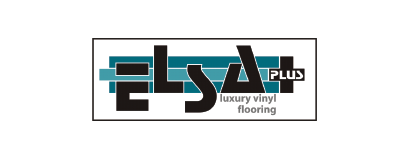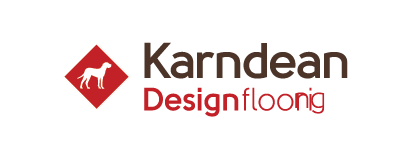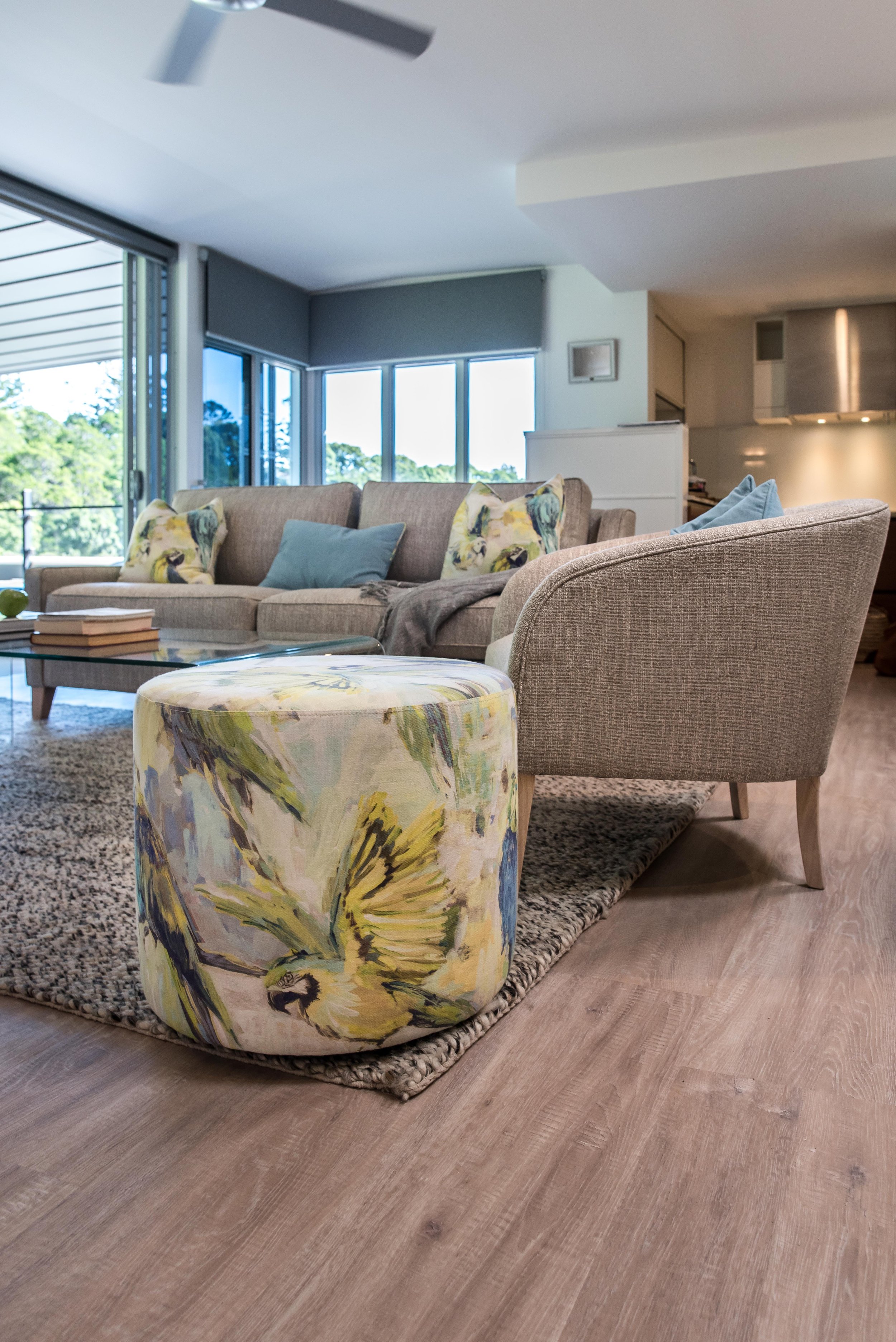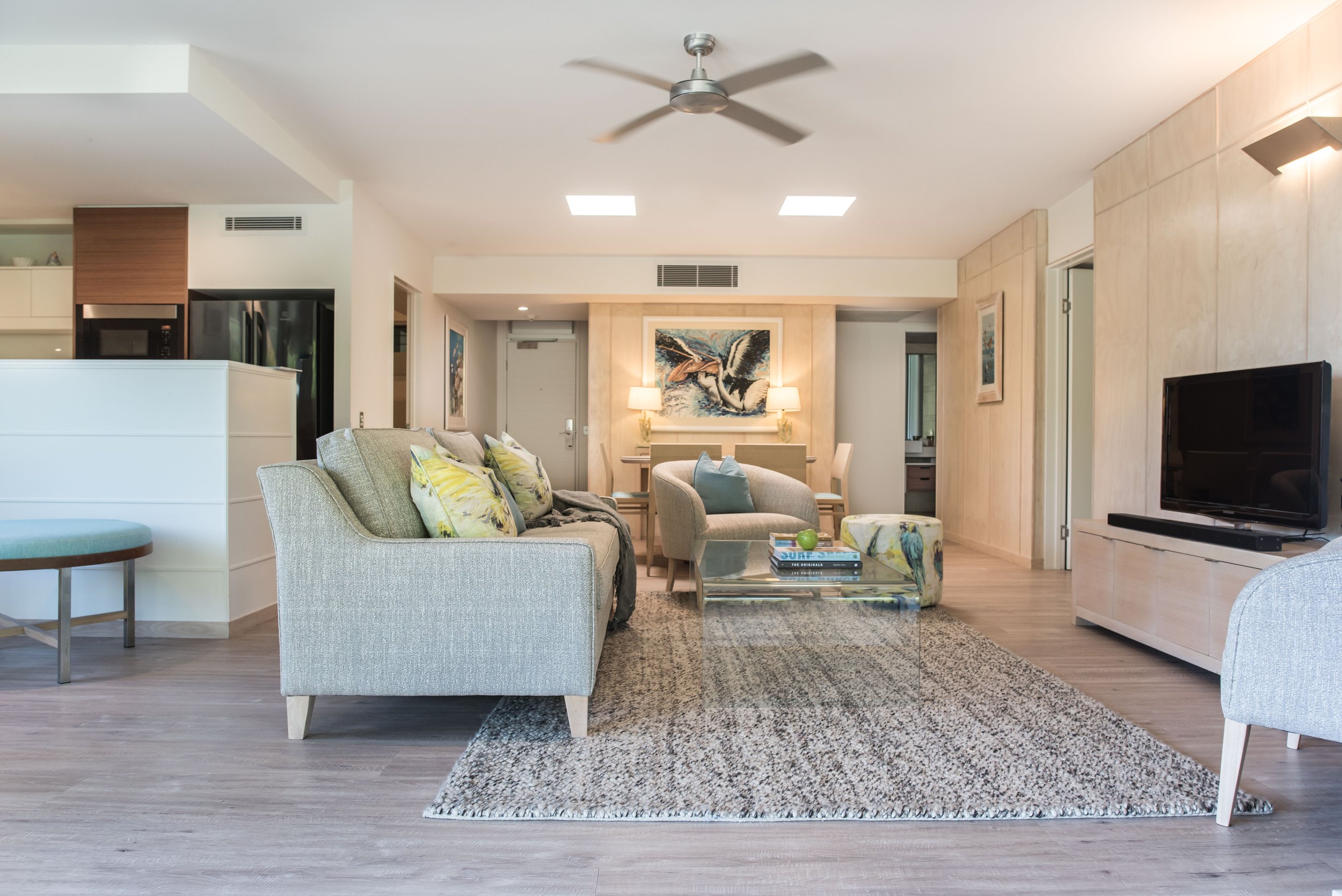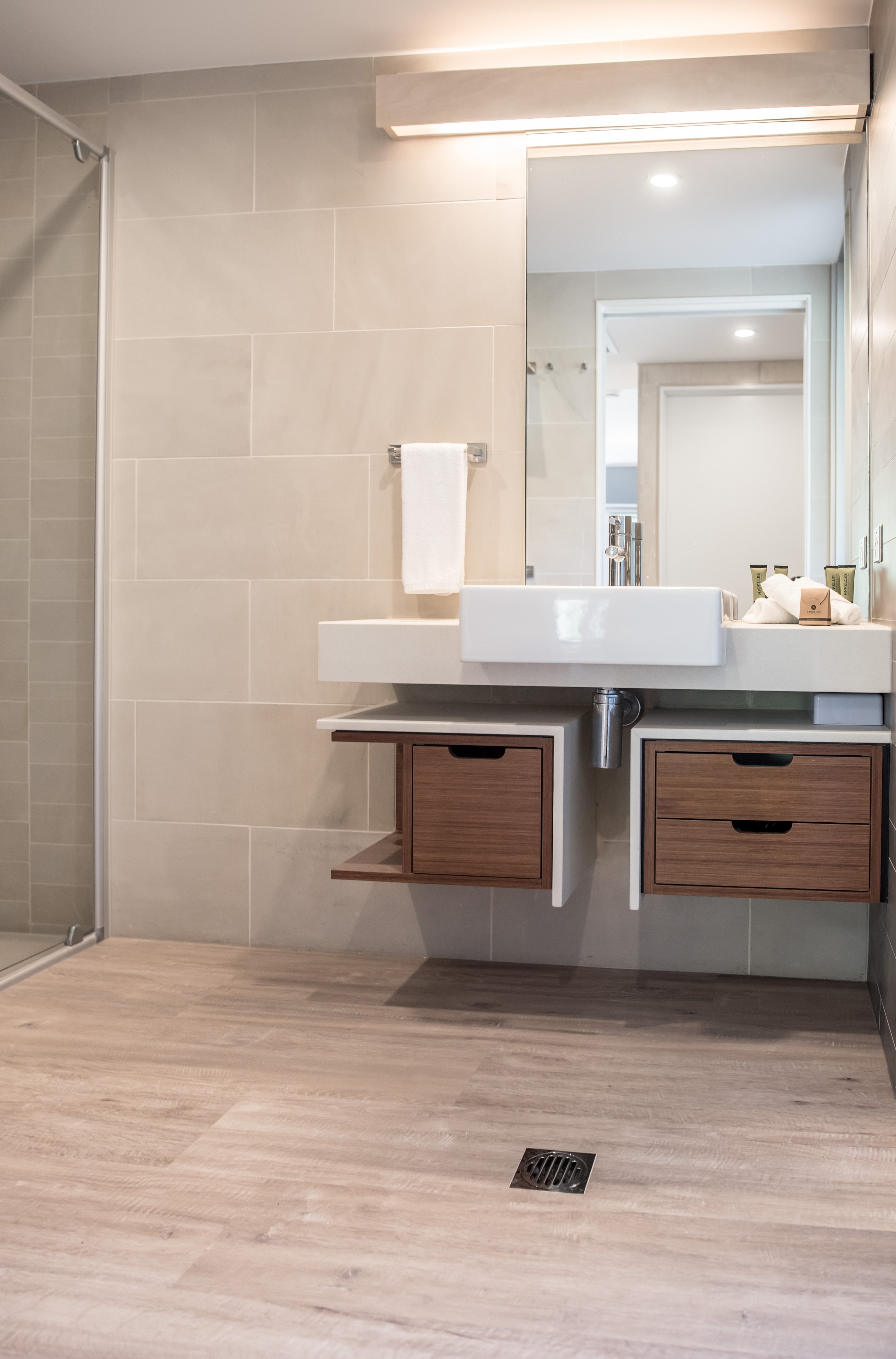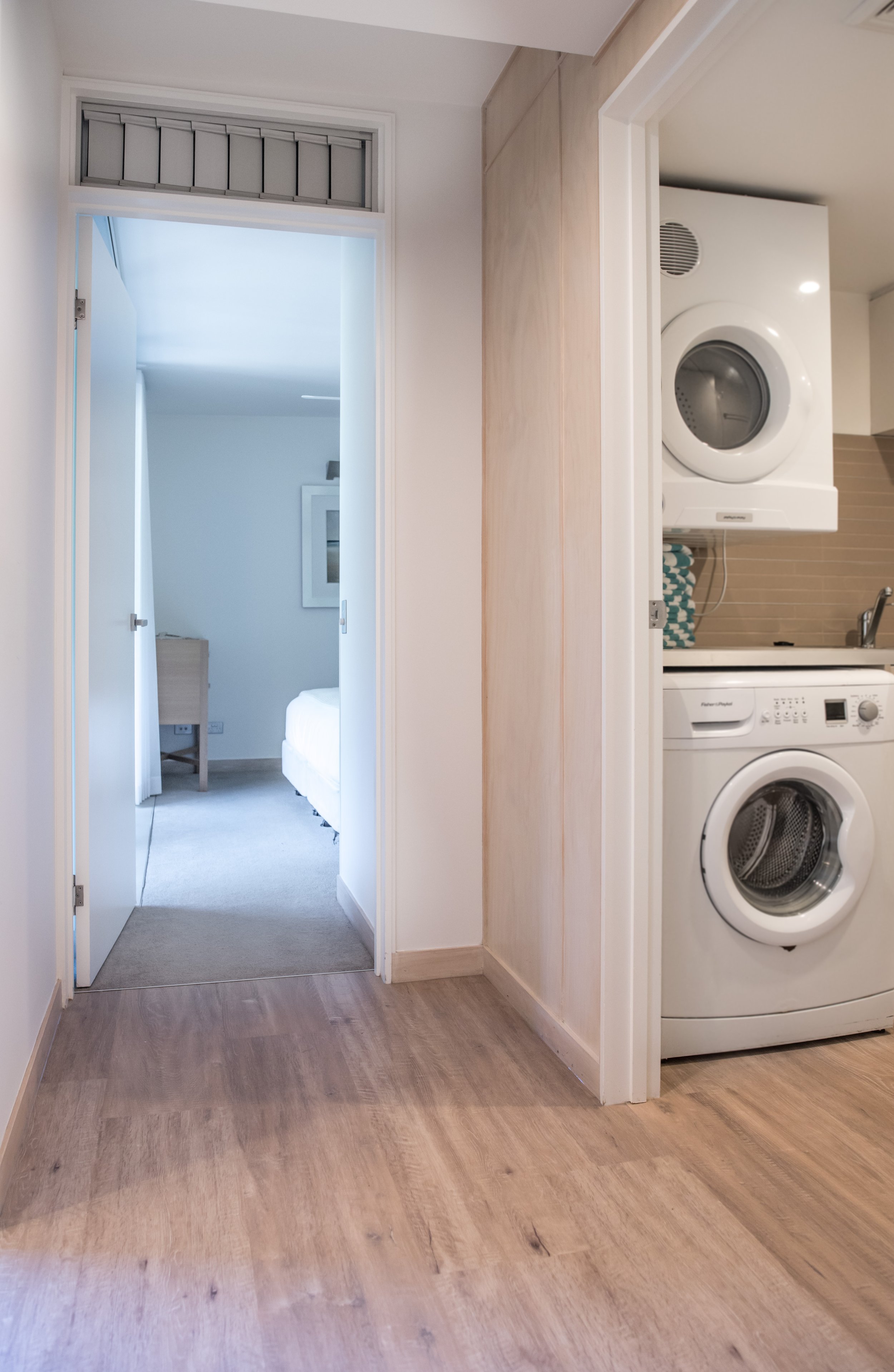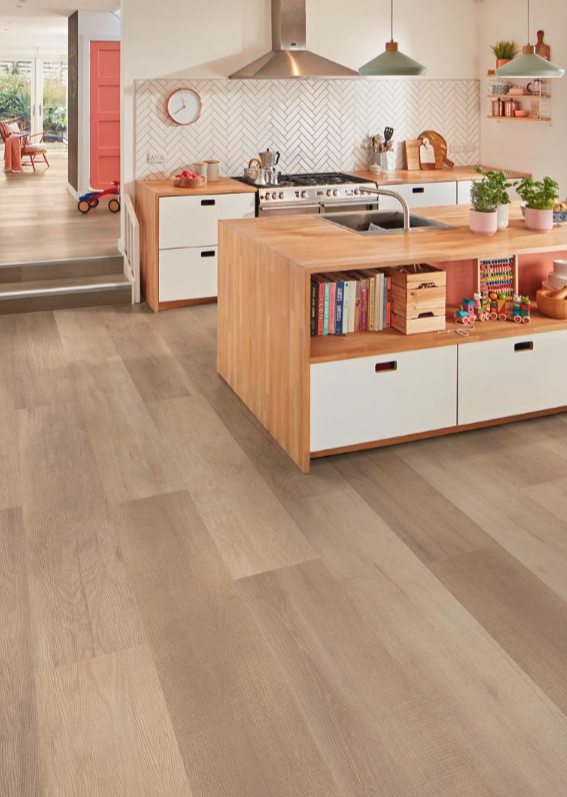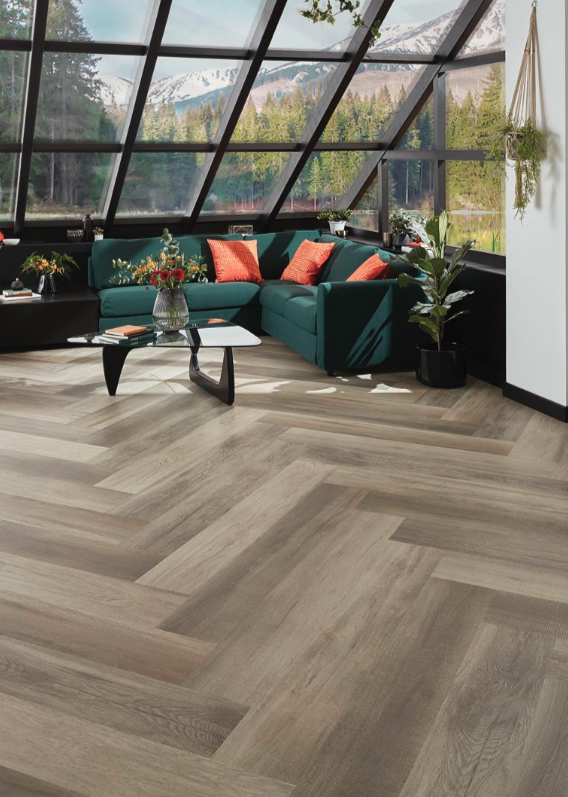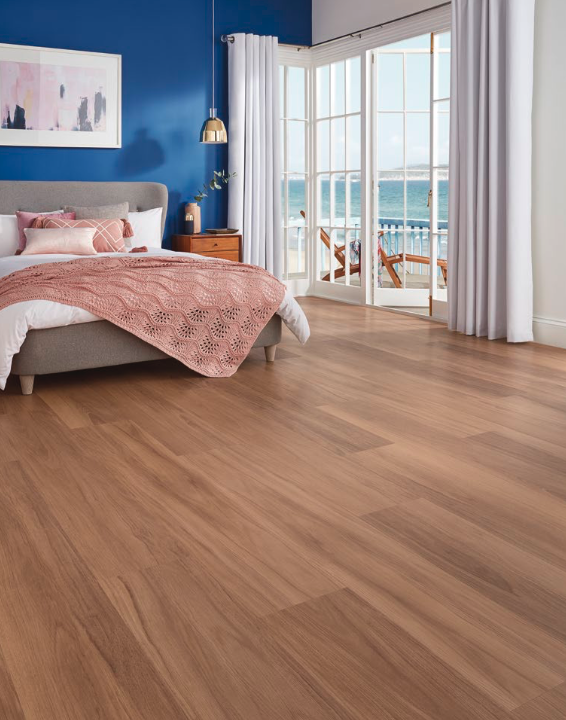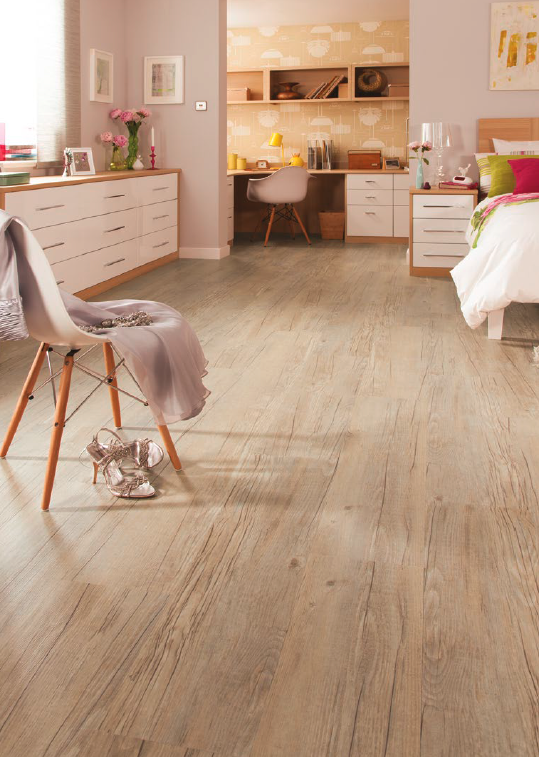
Waterproof Vinyl Plank Flooring Sunshine Coast
MODERN / HARD WEARING / WATERPROOF / QUALITY / COST EFFECTIVE
Modern & Stylish Vinyl Plank Flooring
Vinyl plank flooring is becoming increasingly popular due to their stunning modern look and feel. These wood-mimicking, luxury plank floor systems will have you reconsidering everything you thought you knew about vinyl floors. Their modern and stylish designs are available in many different colours and textures. Importantly, they are great for any area as they are hard wearing, waterproof and easily replaced if damaged. Enjoy a realistic look and feel that remains tough as a thoroughfare flooring in your commercial spaces, public facilities and home. All of our planks are manufactured in Korea, ensuring the best quality planks on the market. We carry a range of manufacturer's planks.
Loose Lay Vinyl Plank Flooring
Our Loose Lay range of vinyl plank flooring is 4.5mm and 5mm thick. The planks are glued down with pressure sensitive glue, ensuring the glue remains permanently sticky and thus preventing the planks from moving. These planks can also be laid without glue: we only recommend this application method in certain circumstances.
Fully Bonded Planks
Our collection of Fully Bonded ranges are 2mm and 3mm thick. The planks are fixed with glue which permanently sticks and sets hard. These planks are more widely used for commercial spaces experiencing heavy loads and high traffic areas.
Acoustic Loose Lay Vinyl Plank Flooring
Our Acoustic Loose Lay ranges are 5mm thick. These planks have been tested and pass Australian standards of noise reduction in low-rise, mid-rise and high-rise buildings. The planks are glued into place with pressure sensitive glue.
We supply and install planks, or you can purchase planks for your DIY project.
Application: commercial spaces, public facilities, homes
Material: vinyl
Designs: we carry a vast range of different designs
Frequently Asked Questions About Vinyl Plank Flooring on the Sunshine Coast
-
Vinyl flooring and hybrid flooring are two popular types of flooring options that offer durability, versatility, and aesthetics. While they share some similarities, there are key differences between vinyl and hybrid flooring.
Composition: Vinyl flooring is made of 100% synthetic materials, typically polyvinyl chloride (PVC). It consists of multiple layers, including a wear layer, printed design layer, and backing layer. Hybrid flooring, on the other hand, combines the best features of vinyl and laminate flooring. It typically consists of a rigid core layer made of composite materials, a printed design layer, and a protective wear layer.
Core Layer: Vinyl flooring usually has a flexible and soft core, which can make it more prone to indentation from heavy objects. Hybrid flooring, with its rigid core layer, offers greater stability and resistance to indentation. The rigid core also provides better dimensional stability, making hybrid flooring suitable for areas with fluctuating temperature and moisture levels.
Water Resistance: Both vinyl and hybrid flooring are water-resistant options, but hybrid flooring generally offers better water resistance. The rigid core of hybrid flooring helps prevent water from seeping through the floor, making it suitable for high-moisture areas like kitchens and bathrooms. Vinyl flooring can also resist water, but excessive moisture may damage the adhesive or cause the flooring to warp if it penetrates the seams.
Installation: Vinyl flooring is available in various forms, including sheets, tiles, and planks. It can be installed using adhesive or as a floating floor with a click-lock system. Hybrid flooring is primarily available in planks with a click-lock system, making it easier to install as a floating floor. The rigid core of hybrid flooring also allows for installation over imperfect subfloors, whereas vinyl flooring requires a smoother surface.
Aesthetics: Both vinyl and hybrid flooring offer a wide range of designs, including wood, stone, and tile patterns. Vinyl flooring often has a more realistic appearance, as the printed design layer is directly on the wear layer. Hybrid flooring can also achieve realistic designs, but the wear layer is separate from the printed layer, which can slightly affect the overall appearance.
Price: Vinyl flooring is generally more affordable compared to hybrid flooring. Hybrid flooring typically costs more due to its enhanced features, such as the rigid core layer and improved water resistance.
When considering the difference between vinyl and hybrid flooring on the Sunshine Coast or anywhere else, it's essential to assess your specific needs, budget, and the environment where the flooring will be installed. Both options have their advantages and are suitable for different applications, so it's important to choose the one that aligns with your requirements.
-
The cost of installing vinyl plank flooring can vary depending on several factors, including the quality of the vinyl, the size of the area to be covered and the complexity of the installation.
On average, the cost of vinyl plank flooring supply & install ranges from from $85 per square metre. This cost typically includes the labour charges for installation and may also include the cost of materials, such as the vinyl planks, adhesive, and underlayment.
To get an accurate estimate for your specific project, get in touch with a member of the Coverings Sunshine Coast team on (07) 5315 8160 for an obligation-free quote tailored to your needs.
-
Luxury vinyl plank (LVP) flooring is designed to be highly resistant to fading, including exposure to sunlight. However, it's important to note that no flooring material is completely immune to the effects of UV radiation over an extended period.
Most high-quality LVP flooring products have built-in UV inhibitors and protective coatings that help minimise the potential for fading and discolouration. These protective layers shield the flooring from the harmful effects of UV rays and help preserve the colour and appearance of your planks.
While LVP is more resistant to fading compared to materials like hardwood or laminate flooring, prolonged and intense exposure to direct sunlight can still have some impact over time. Factors such as the intensity and duration of sunlight, the specific type and quality of LVP, and the presence of additional protective measures (such as window coverings) can all influence the potential for fading.
To further reduce the risk of fading, you can consider taking certain precautions, such as using window treatments like blinds or curtains to limit the amount of direct sunlight reaching the LVP flooring. Additionally, regularly moving rugs and furniture around can help prevent uneven exposure to sunlight and minimise the chances of noticeable fading.
-
The best person to answer this question is actually… you!
The choice between vinyl and laminate flooring depends on your specific needs, preferences, and the characteristics of the space where the flooring will be installed.
Both vinyl and laminate flooring offer plenty of benefits, so here’s a quick rundown of your options:
Vinyl Flooring
✓ Water Resistance: Vinyl flooring is highly resistant to water, making it suitable for areas prone to moisture, such as bathrooms and kitchens.
✓ Durability: Vinyl flooring is generally more durable and resistant to scratches, stains, and dents compared to laminate flooring. It can withstand high-traffic areas and is less likely to show signs of wear and tear.
✓ Easy Maintenance: Vinyl flooring is easy to clean and maintain. Regular sweeping and occasional mopping with a mild cleaner is usually sufficient to keep it looking its best.
✓ Softness and Comfort: Vinyl flooring has a slightly softer and more cushioned feel underfoot compared to laminate flooring, making it more comfortable to walk on for extended periods.
Laminate Flooring
✓ Affordability: Laminate flooring is often more budget-friendly compared to vinyl flooring, making it a popular choice for cost-conscious consumers.
✓ Aesthetics: Laminate flooring can mimic the appearance of natural materials, such as hardwood or stone, with a printed photographic layer. It offers a wide range of styles, colours, and textures to suit various design preferences.
✓ Installation: Laminate flooring is typically installed as a floating floor with a click-lock system, making it a relatively straightforward DIY project. It does not require adhesive or nails.
✓ Resistant to Fading: Laminate flooring is generally more resistant to fading from sunlight exposure compared to vinyl flooring, although it can still be affected over an extended period.
Ultimately, the better option between vinyl and laminate flooring depends on your specific priorities. If you prioritise water resistance, durability, and ease of maintenance, vinyl flooring may be a better choice.
On the other hand, if affordability, a wide range of aesthetic options, and easy installation are important to you, laminate flooring may be more suitable. It's recommended to consider your specific needs, lifestyle, and budget to make an informed decision.
-
No. Vinyl plank flooring is generally known for its durability and resistance to scratches.
However, while vinyl plank flooring is more resistant to scratches compared to materials like hardwood or laminate, it is not completely scratch-proof. The level of scratch resistance can vary depending on the quality and thickness of the wear layer of the vinyl plank.
Higher-quality vinyl planks typically have a thicker wear layer, which provides better protection against scratches and abrasions. A wear layer of 20 mils (or higher) is considered more durable and offers increased resistance to scratches. Thinner wear layers, such as 6 mils, may be more susceptible to scratching.
Although vinyl plank flooring is designed to withstand normal wear and tear, it's important to take some precautions to minimise the risk of scratches:
Use Protective Pads: Place felt or rubber pads under furniture legs and other heavy objects to prevent them from scratching the surface when moved.
Avoid Sharp Objects: Be cautious when moving or dragging sharp or heavy objects across the vinyl plank flooring. These can potentially cause scratches or damage to the wear layer.
Regular Maintenance: Keep the flooring clean by sweeping or vacuuming regularly to remove dirt and debris that can act as abrasive particles. Avoid using harsh or abrasive cleaning agents or tools that could scratch the surface.
Entrance Mats: Place entrance mats or rugs at entryways to help trap dirt and grit from shoes before it reaches the vinyl plank flooring, reducing the risk of scratching.
By following these preventive measures and properly maintaining your vinyl plank flooring, you can help minimise the chances of scratches and prolong its overall appearance and lifespan.
Flooring Brands We Supply
Major Brand Suppliers





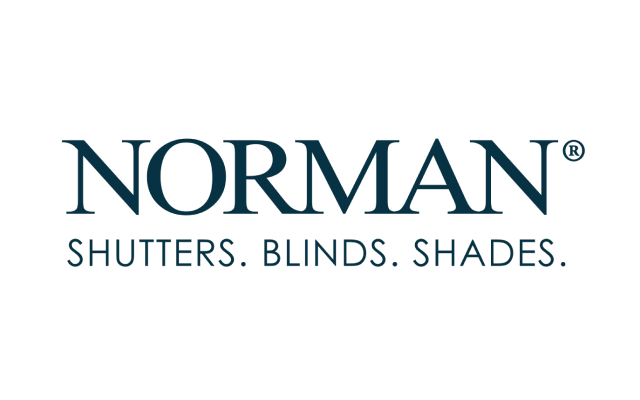

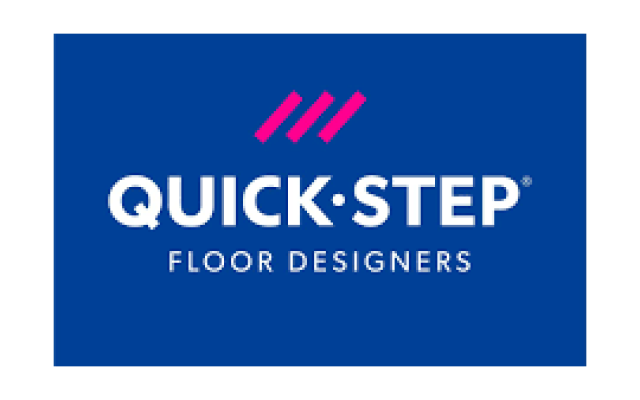
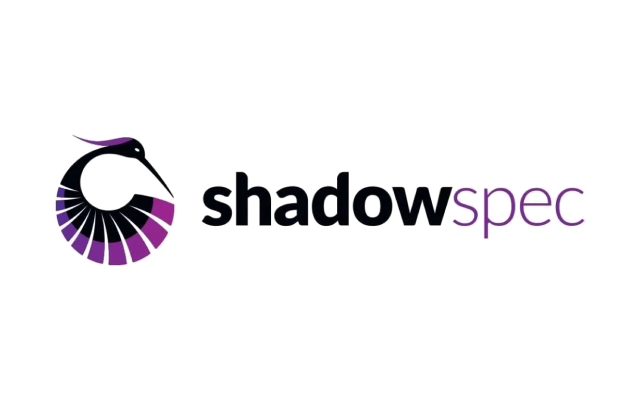
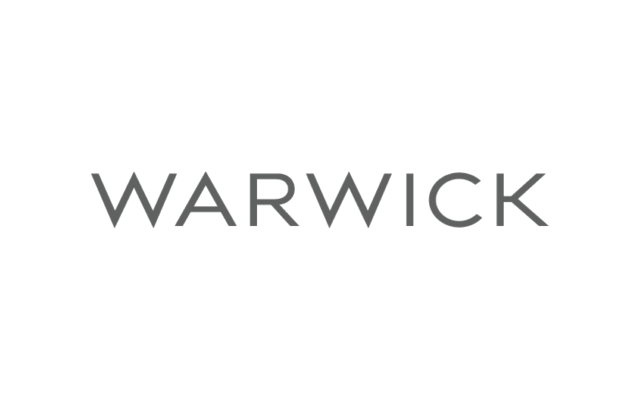







Why Choose Us
25 Years of Experience
Up to 25 Year Product Warranty
Free Quote & Measure
Australian Made Products
Free Colour Consultation
Custom Design
Client love notes
-
“We are so thrilled with our window coverings. It is so hard to think that it has been a year since we moved in.”
Jan and Jim Christian
-
“Coverings Noosaville have taken their business to a new level. Its a fantastic experience to visit their showroom. Most Coverings Showrooms look like they have come from the mid century and are typically bleak and unimaginative. The products displayed are very appealing. Systems are app driven and sleek. Messaging and a smooth process is top class. Rate the team very highly“
Cheryl Nash
-
“Fantastic local company. Very prompt from quoting to installation. Excellent customer service and a very high quality product. Would 100% recommend using Coverings Sunshine Coast.“
Merrick Davis
